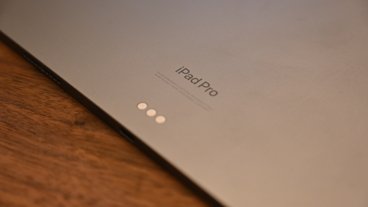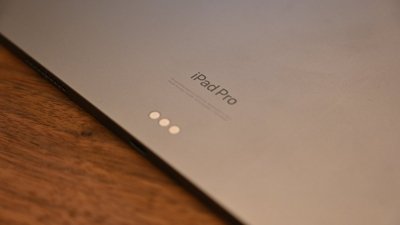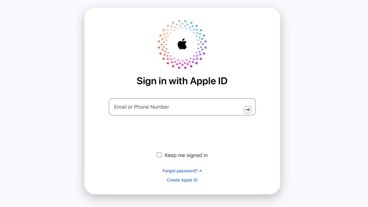Motorola demanded license for all Apple iPhone patents for access to 3G standard
Motorola's demands were revealed in documentation by the European Commission, which noted that in late 2011, patent licensing negotiations between the two companies "envisaged a cross-licence possibly to the benefit of all Android OEMs but also with mutual carve-outs."
The discussions, described by Florian Mueller of FOSSPatents, appeared to be based on a request by a German court to at least attempt to reach a settlement.
Mueller described one settlement negotiation between the two companies where "Apple didn't even send any corporate officer," and "no Apple official sat besides its outside counsel," suggesting that the company had no serious interest in negotiating with Motorola under the terms it demanded.
The discussions noted by the EC were made in relation to its cautious approval of Google's acquisition of Motorola Mobility. The negotiators "realized that the deal would have to be palatable to Google, which didn't (and still doesn't) own MMI in formal terms but is likely to own it soon and has to consent to any settlement before MMI can enter into it," Mueller noted.
All the tea
A footnote in the EC document added that "according to Apple, Motorola Mobility has insisted that Apple cross-licenses its full non-SEP [standards essential patent] portfolio in exchange for Motorola Mobility's SEPs.
"Apple also argues that its refusal to accede to this demand led Motorola Mobility to sue Apple in an attempt to exclude Apple's products from the market. On the terms of Apple's own argument, Motorola Mobility's allegedly anti-competitive behaviour in this regard well precedes the [Google] merger at issue in the present decision. See, for instance, the e-mail of 2 February 2012 from Apple to the Commission."
While Motorola has indicated that Apple simply refused to properly license its patents, and has won German sales injunctions against certain iOS devices (which have been suspended, allowing products to return to the shelf) and against Apple's iCloud messaging services (which are still in effect, and which Motorola is trying to expand into the US), Apple has appealed the rulings.
Apple stated it appealed "because Motorola repeatedly refuses to license this patent to Apple on reasonable terms, despite having declared it an industry standard patent seven years ago."
Discriminatory licensing to block iPhone sales
In December, Apple filed a new complaint against Motorola, detailing that the company has attempted to revoke its patent license with Qualcomm (which produces the baseband chips that allow iPhone and iPad models to connect to wireless networks) and demand new licensing terms from Apple.
"Motorola’s German lawsuit is in direct breach of a Patent Licensing Agreement between Motorola and Qualcomm. As a Qualcomm customer, Apple is a third-party beneficiary of that contract," the company stated.
"Moreover, under this same contract, Motorola’s rights under the ‘336 and the ‘898 patents are exhausted. Accordingly, Apple brings this suit for breach of contract, declaratory, and injunctive relief, and asks this Court to enjoin Motorola from prosecuting and enforcing its claims against Apple in Germany."
Government scrutiny of Motorola, Google and patent abuse
Both the U.S. Department of Justice and the European Commission have approved Google's $12.5 billion acquisition of Motorola, but they have also voiced concerns that Google will abuse the patents it acquires from Motorola. The DoJ called out Google for being "more ambiguous" than Apple or Microsoft in its commitments to upholding FRAND licensing terms for standards-essential patents.
Last month, European Union Competition Commissioner Joaquin Almunia announced plans to "use antitrust powers to prevent patents from being used to unfairly control market share, including in ongoing investigations," adding, "I am determined to use antitrust enforcement to prevent the misuse of patent rights to the detriment of a vigorous and accessible market. I have initiated investigations on this issue in several sectors and we will see the results in due time."
 Daniel Eran Dilger
Daniel Eran Dilger










 Malcolm Owen
Malcolm Owen
 Charles Martin
Charles Martin
 Mike Wuerthele
Mike Wuerthele


 Chip Loder
Chip Loder

 William Gallagher
William Gallagher






80 Comments
Motorola Mobility demanded access to Apple's entire patent portfolio in order to gain access to its own patents required to practice industry standards, such as connecting to 3G mobile networks.
Motorola's demands were revealed in documentation by the European Commission, which noted that in late 2011, patent licensing negotiations between the two companies "envisaged a cross-licence possibly to the benefit of all Android OEMs but also with mutual carve-outs."
The two bolded statements are mutually exclusive.
Likely the truth is the first casualty of this war.
Why does Moto needs Apple's entire patent portfolio?
Why does Moto needs Apple's entire patent portfolio?
So they can copy Apple's products.
The two bolded statements are mutually exclusive.
Likely the truth is the first casualty of this war.
I read those statements differently. The entire patent portfolio statement is with regards to Motorola getting the licenses to use. The mutual carve-outs are with respect to which of Apple's patents also get licensed to all Android device makers. In other words, Motorola gets it all, and other vendors get only a subset.
Is that how others read it?Thompson
Why does Moto needs Apple's entire patent portfolio?
Especially for something that is FRAND. Samsung is NOT operating in good faith